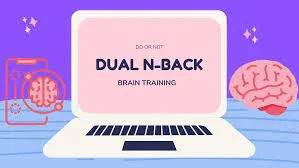Some Neuroscience Hacks to Become Smarter and Genius
Many people believe intelligence is fixed at birth and impossible to change. However exciting research in neuroscience reveals the brain is remarkably malleable throughout life. Neural connections can be strengthened over time, boosting working memory, cognitive skills, and intelligence. With knowledge of how the brain works, you can harness neuroplasticity to become smarter and develop your genius potential.
Here are some powerful neuroscience hacks to build mental muscle:
Exercise Regularly
Physical activity provides a major boost to brain power. Aerobic exercise that gets your heart pumping increases blood flow and oxygen to the brain. This promotes the growth of new neurons, a process called neurogenesis. The hippocampus region, vital for memory and learning, is especially responsive to aerobic activity.
Just 30 minutes of brisk walking or jogging 3-4 times per week can kickstart neurogenesis. Consistency is key. The cognitive gains fade if you don’t keep up an exercise habit.
Weight training may seem solely for building brawn, but it also benefits the brain. Lifting weights releases key proteins like brain-derived neurotrophic factor (BDNF). This compound strengthens existing neurons and encourages new neural connections. The executive functions of the brain get a solid workout during strength training as well.
Learn Continuously
The adage “use it or lose it” applies to your brain’s neural networks. Challenging your brain with new learning strengthens connections between neurons. With focused study and practice, skills become more automatic and efficient through enhanced neural pathways.
Learning a new language, instrument, hobby, or skill all provide excellent brain training. Set aside time each day for deliberate practice to maximize gains. Not only do you gain domain expertise, but greater general intelligence emerges from building this cognitive “muscle”.
Seek out mentally stimulating activities that push you outside your comfort zone. Learning demands effort but pays off in forging new neural circuitry.
Practice Dual N-Back Training
This brain game has risen in popularity based on research showing it genuinely boosts working memory, focus, and fluid intelligence – key markers of IQ. It’s a challenging activity forcing you to remember and track multiple pieces of data at once.
Here’s how dual n-back works:
You’re presented with a sequence of letters and a sequence of spatial locations on a 3×3 grid. The letters and locations flash briefly in alternating turns. Your task is to identify when the current letter matches the letter shown “N” turns ago, while also identifying when the location matches “N” turns back.
As you get better, you increase N to make it harder. Properly focused 20-minute daily sessions can yield measurable IQ gains after just 4 weeks. Dual n-back forces your brain to update stored information while not losing sight of the bigger picture.
Unlearn Habitual Thinking
The deep neural pathways forged from repetitive thinking make it easy to fall into ruts. Confirmation bias leads us to seek information confirming pre-existing beliefs. Breaking out of these mental habits allows more agility and openness to grow intelligence.
Actively challenge default assumptions and predictable reactions. Try creative exercises like imagining an opposite viewpoint, writing with your non-dominant hand, or thinking through problems backward. These jolts to habitual thinking forge new connections.
Varied experiences also guard against narrow perspectives. Exposing yourself to different cultures, ideas, and mental models stops the brain from becoming stuck and rigid.
Rest and Recover
While pushing your mental limits aids neuroplasticity, resting and recovering is just as crucial. During sleep, the brain consolidates memories and learnings from the day for long-term storage. This process strengthens the neural pathways built through study and practice.
Deep NREM sleep appears vital for transferring short-term hippocampal memories into durable learnings in the prefrontal cortex. REM sleep also intertwines memories to pull out insights. Getting insufficient sleep hinders learning and growth.
Wakeful rest also allows neural networks to organize themselves more efficiently after intense learning. Downtime activities like walking, listening to music, or taking a shower spark creative neural connections. Don’t underestimate the cognitive gains derived from proper rest.
Adopt a Growth Mindset
Stanford psychologist Carol Dweck’s research reveals intelligence is malleable, not fixed. People with a growth mindset, who believe intelligence can be developed, can keep expanding their abilities. But those with a fixed mindset about intelligence stagnate because they believe some people are just gifted while others aren’t.
This becomes a self-fulfilling belief. People convinced they lack an “innate gift” don’t bother pushing themselves to learn rigorously. But when you embrace every failure or setback as an opportunity to grow, you achieve higher levels of success. Don’t let cognitive plateaus discourage you from nourishing your mind. Grit and persistence pay off.
Learn Mnemonic Techniques
Mnemonic devices leverage tools like acronyms, rhymes, visualizations and associations to boost memory retention and recall. They provide excellent training for strengthening neural connections through creative thinking and linking concepts together in memorable ways.
For example, memorizing long lists using the Memory Palace technique activates spatial memory neural networks. Rhyming mnemonics flex creative wordplay circuits. Chunking numbers into meaningful units taps numerical reasoning abilities.
Implement mnemonic techniques when learning any new information to maximize neural engagement. As you memorize more with mnemonics over time, your memory strengthens significantly.
Use Chunking Methods
Our working memory capacity is limited. Chunking breaks information into meaningful sections that are easier for the brain to rapidly process. This technique leverages neural compression to learn material more efficiently.
For example, try memorizing this string of 21 numbers:
39985773829748392028472
Quite difficult, right? Now try chunking it:
399-857-738-297-483-920-2847-2
Suddenly it’s manageable as you break it into bite-sized chunks. The same concept applies when learning extensive material. Look for logical groupings you can latch onto and digest.
Chunking eases cognitive load, allowing short-term memory to more readily convert learning into durable long-term memory. It streamlines the brain’s processing.
Embrace Mental Models
Mental models originate from multiple academic disciplines but serve as useful thinking frameworks. Internalizing models from math, science, humanities, psychology, and other fields provide helpful schemata to analyze information and solve problems systematically.
Models like the scientific method, Maslow’s hierarchy, game theory, heuristics, and Occam’s razor shortcut the problem-solving process. Instead of reasoning everything out from scratch, useful patterns and reference points guide your thinking.
Expanding your repertoire of mental models handles cognitive tasks more effectively by tapping prior structured thinking. It develops the flexible thinking essential to genius-level intellect.
Conclusion
While genetics dictate the raw potential of your brain, how much you fulfill that potential depends on life choices. Commit to exercising your brain consistently with these neuroscience-backed hacks. Gradually strengthen neural connections through learning, training your memory and focus, thinking flexibly, and resting properly.
Like any fitness routine, building your brain takes dedication. But staying motivated produces immense rewards of increased intelligence, memory, focus, creativity and cognitive abilities. Make the mindset shift from believing your intelligence is fixed to embracing neuroplasticity. With lifelong learning and brain training, you can sculpt a sharper, faster mind and even realize latent genius.
People Also Ask
How can I increase my brain capacity?
Regular aerobic exercise, weight training, learning new skills, dual n-back training, mnemonic techniques and proper sleep habits all build neural connections to expand brain capacity. Stay mentally active.
What daily habits make you smarter?
Reading challenging books, learning new languages, playing brain games, meditating, taking online courses, and avoiding cognitive junk food habits like social media overuse.
Can anyone become a genius?
Genius-level expertise requires tremendous focus over years of deliberate practice in a domain. But improving intelligence and developing unique insights is achievable through diligent mental exercise. Expand thinking.
Is IQ fixed or changeable?
Neuroplasticity research shows IQ can be developed over time by strengthening cognitive skills like memory, speed, focus, etc. IQ has both fixed genetic and changeable environmental components.
How do very intelligent people think?
They have an insatiable curiosity to keep learning. They lean on mental models, think flexibly and multi-dimensionally, turn ideas upside down, and synthesize information into fresh perspectives. But anyone can train their brain this way.

